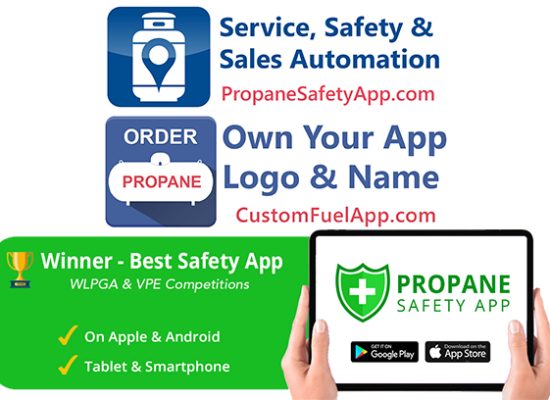
AI in Fuel Delivery: Transforming Operations and Customer Experiences
In the ever-evolving landscape of fuel delivery, technology plays a pivotal role in meeting customer expectations and streamlining operations. The “2023 Tech Trends in Fuel Delivery Report” highlights the industry’s growing demand for easier access to data and faster decision-making processes. To address these needs, energy companies are exploring cutting-edge technologies like generative artificial intelligence (AI), which holds the potential to revolutionize various aspects of the fuel delivery business.
Understanding Artificial Intelligence
Artificial intelligence encompasses computer systems that perform tasks traditionally requiring human intervention, such as data analysis, content creation, and predictive modeling. Two categories stand out when discussing AI in business: predictive AI and generative AI.
Predictive AI, with its ability to analyze historical data and predict future outcomes, has been a cornerstone of data-driven decision-making for years. However, the game-changer is generative AI, which creates content based on human-provided prompts. Unlike predictive AI, it doesn’t rely on historical data and pattern analysis, making it capable of generating entirely new and unique ideas.
Generative AI’s Impact on Business
Generative AI’s utilization in business, including creating emails and data analysis, generates significant buzz. According to McKinsey Insights’ 2023 report, generative AI has the potential to automate work activities that currently consume 60% to 70% of employees’ time. Contrary to concerns about AI job displacement, its integration into fuel delivery operations aims to enhance human capabilities rather than replace them.
Practical Applications of AI in Fuel Delivery and HVAC Services
Several fuel delivery companies are already harnessing AI’s power, but for those yet to embark on this journey, here are three ways to implement AI tools effectively:
1. Customer Operations: Enhancing Responses
Imagine receiving an emotionally charged email from a dissatisfied customer regarding a late delivery. Crafting the proper response can be challenging. AI comes to the rescue by helping fuel dealers draft personalized responses promptly. This saves time and ensures faster customer interactions, which is crucial in addressing issues of dissatisfaction.
2. Sales and Marketing: Streamlining Campaigns
Planning and executing marketing campaigns, such as HVAC service promotions, can be resource-intensive, involving multiple channels. AI simplifies this by generating campaign ideas and content tailored to your target audience and offers. This allows fuel dealers to focus on personalized customer interactions instead.
3. Employee Training: Accelerating Multimedia Creation
AI isn’t limited to text; it can create multimedia content like videos and images. Suppose you need a training video for new drivers during the busy season. AI can speed up the process by generating video scripts based on provided instructions and producing footage. This eliminates the need for time-consuming filming.
Future Potential of AI in Fuel Delivery
Looking ahead, AI holds immense promise for fuel delivery companies:
1. Demand Forecasting: Precision Predictions
AI can revolutionize demand forecasting by swiftly analyzing historical data and predicting propane sales, expected runouts, and more. It can even provide account-specific insights, optimizing delivery schedules and maintenance.
2. Process Optimization: Efficiency Maximization
AI’s real-time data analysis can optimize delivery routes, considering traffic and weather conditions. Additionally, service techs can use AI to optimize HVAC system settings based on environmental conditions, saving costs for customers and businesses.
3. Financial Operations: Intelligent Reporting
In financial operations, AI generates reports and risk assessments in minutes. It simplifies budget creation, even if your accounting team doesn’t utilize AI directly.
Harmonizing AI and Human Intelligence
The introduction of AI raises concerns about job displacement, but history shows that technological innovations have increased employment opportunities. AI should be viewed as a tool to enhance human capabilities, not replace them. Collaboration between AI-savvy individuals and AI tools is essential to unlocking its potential.
Choosing the Right Software Environment
To fully leverage AI, fuel delivery businesses should embrace cloud-based software environments. Cloud tools provide accessibility, flexibility, and scalability, enabling seamless integration of AI applications.
In the busy and complex world of fuel delivery, AI stands as a powerful ally, enhancing efficiency, customer satisfaction, and operational excellence. As the industry continues to grow, embracing AI will be essential for staying competitive and meeting the ever-growing demands of customers. Connect with Digital Software Services, maker of TankSpotter.com and CustomFuelApp.com and leading fuel industry web and mobile software application development leader, to explore AI integration options tailored to your fuel delivery business’s unique needs.









